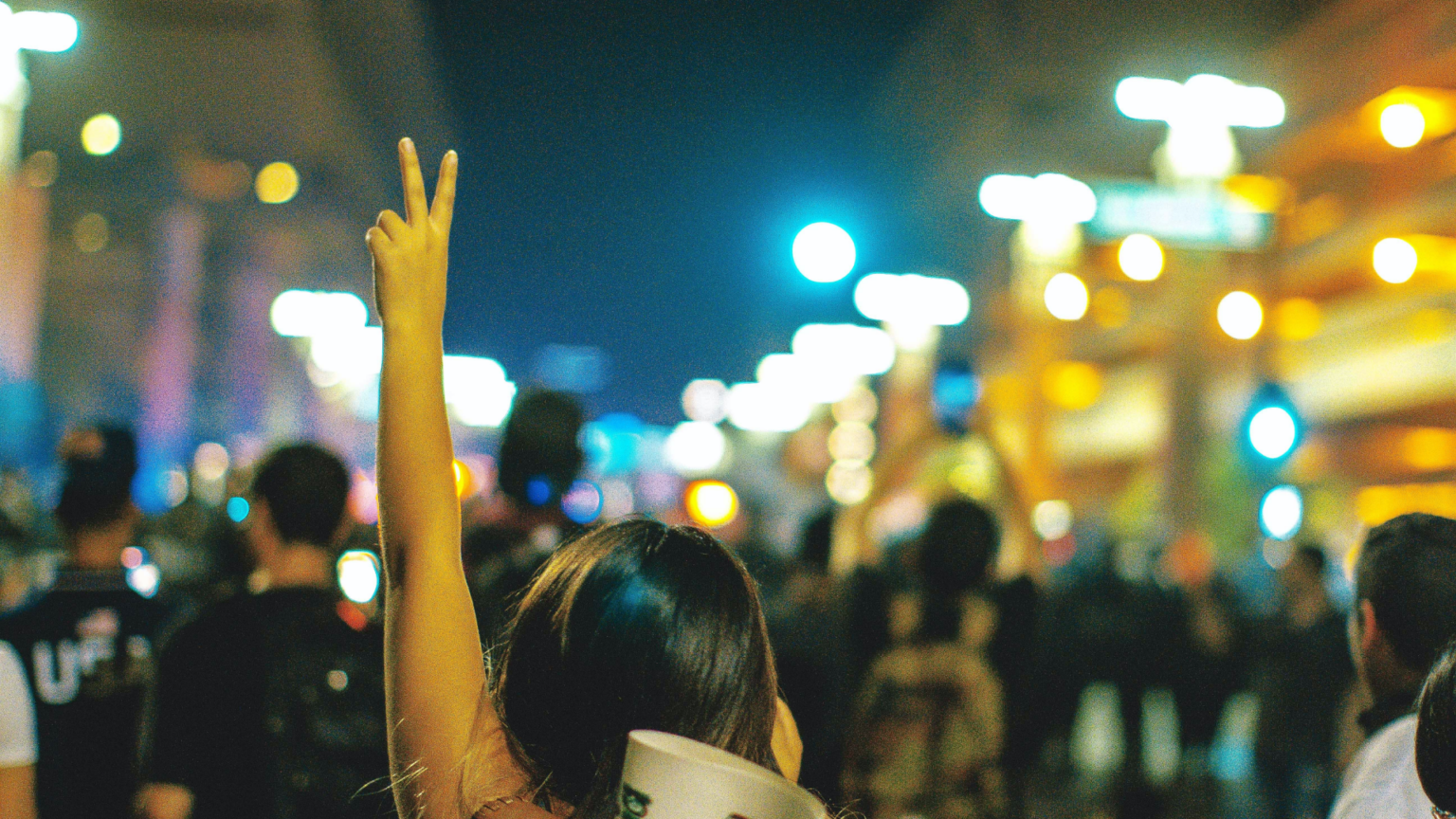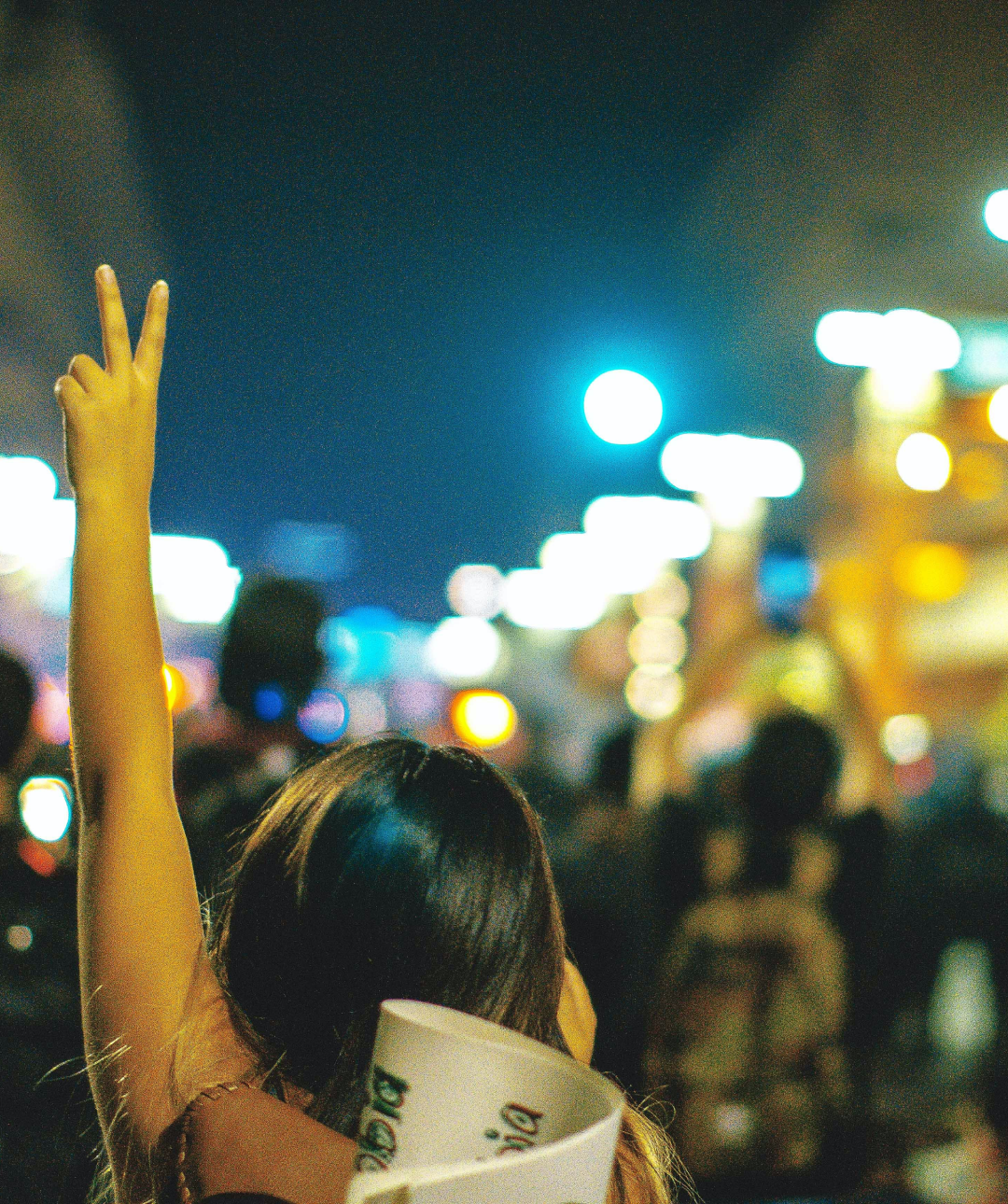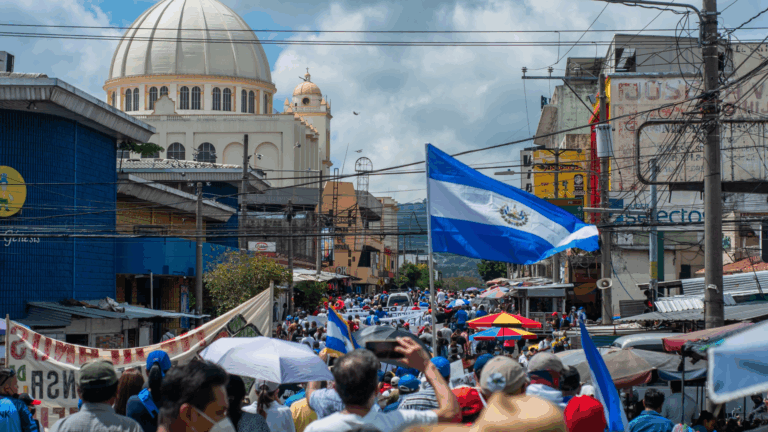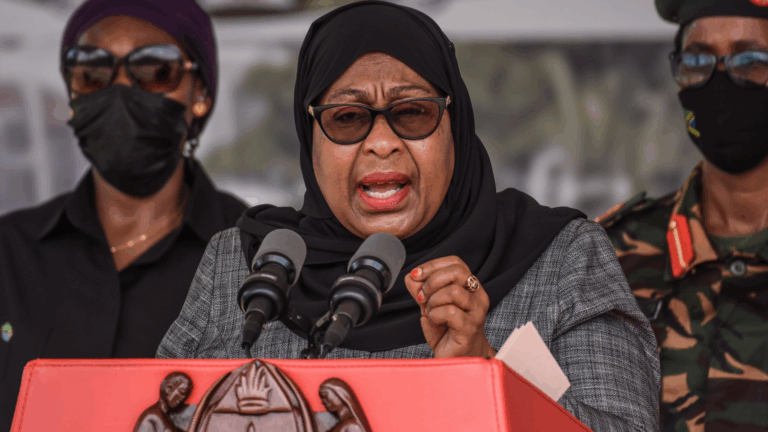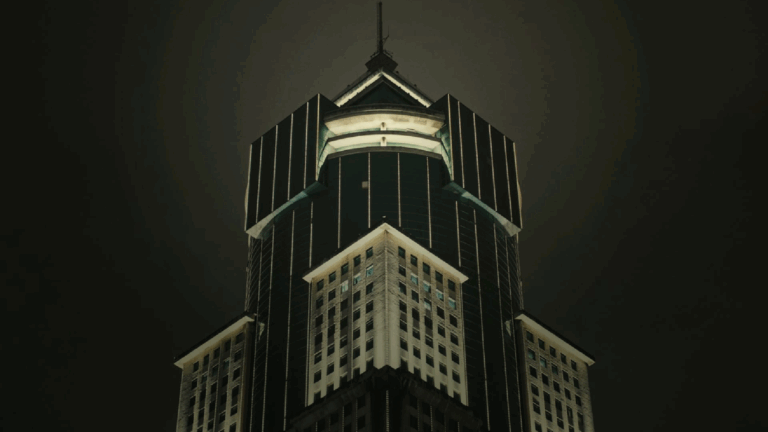The past year has brought remarkable changes in the way we live our everyday lives. In response to the COVID-19 pandemic, most governments have placed restrictions in order to curb the spread of the virus, forcing billions of people to spend more time online, and less time outside. The pandemic has accelerated many trends in technology and entertainment while upending the way we work, play, and relax. It has also had a huge impact on the way we protest and act politically.
As we step into 2021, HRF takes a look back at some of the underlying themes behind the struggle for freedom this year. Many authoritarian governments have seized on the pandemic to tighten restrictions on basic freedoms, going far beyond the recommendations of public health professionals, while activists and protesters have had to adapt to new and challenging conditions, using technology and innovation. The sports and entertainment industries which are often exploited by tyrants to expand their power have come underneath greater scrutiny over the past year, and the role of women in protest movements continues to expand.
Women have continued to lead protests around the world this year, including in traditionally patriarchal societies. Women were at the frontlines of the EndSARS movement in Nigeria — from DJ Switch, who livestreamed a deadly shooting of protesters, to The Feminist Coalition, a group of women activists who crowdfunded hundreds of thousands of dollars and organized legal, financial, medical, and psychological aid to protesters.
In Sudan, women made up the majority of protesters and now play an active role in the democratic transition process, including as the country’s first woman foreign minister. Women are also taking the lead in protests in Thailand, speaking up against the patriarchal military government and monarchy, and challenging the traditional notion of government.
The importance of women’s rights has been incorporated across their messaging, emphasizing how true democracy can not be achieved when “our bodies and reproductive health are still controlled by the government.” In Hong Kong, young women, such as prominent pro-democracy activist Agnes Chow and reporter-turned-politician Gwyneth Ho, boldly stood up against the Chinese government’s encroaching influence. Chow was sentenced to prison for politically-motivated charges in December 2020, and spent her 24th birthday in jail.
Activists like Fatou Toufah Jallow, from The Gambia, have spoken out about the culture of silence regarding sexual assault after she was raped by former dictator Yahya Jammeh.
Perhaps most striking, however, has been the role that women have played in the protests against Belarusian dictator Alexander Lukashenko; in Belarus, the role of women has truly been new this year. Sviatlana Tsikhanouskaya challenged the patriarchal norms of Belarus, and ran for president when the authorities jailed her husband, the popular blogger Siarhei Tsikhanouski.
Though the regime initially dismissed her candidacy because of her gender, Tsikhanouskaya teamed up with two other women, Veronika Tsepkalo, the wife of a exiled presidential candidate, and Maria Kalsenikova, the campaign manager of another jailed presidential candidate, to run the most extraordinary political campaign in the history of Belarus.
The three women galvanized public support and staged the largest opposition rallies the country had ever seen. When the election results were falsified, hundreds of thousands of Belarusians took to the streets to protest the dictatorship.
On the streets, women also took a leading role, putting their bodies on the line and marching in the front rows, protecting men from aggressive riot police who were initially hesitant to attack women. The woman in white has become an artistic symbol for the protests in Belarus, and though Tsikhanouskaya was forced into exile, she is recognized as the legitimate leader of Belarus, and continues to symbolically represent the people of Belarus.
Moving into 2021, we must continue to support those that are fighting for freedom and democracy. You can help by making a contribution to the Human Rights Foundation today.


